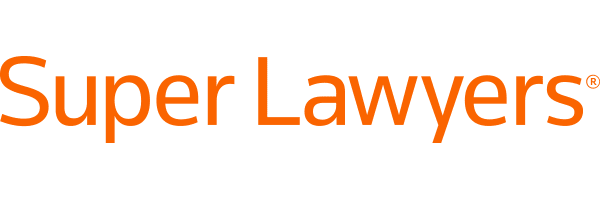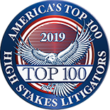Joe Griffith is one of the leading attorneys in the legal fields of bank fraud, white collar crime, white collar criminal defense, and white collar criminal law. JGLF is located in Charleston County and Mt. Pleasant, South Carolina, and is led by former federal prosecutor Joseph P. Griffith, Jr. who is designated as an AV rated attorney by the prestigious Martindale-Hubbell® attorney rating company, signifying the highest possible ranking for legal ability and ethics as judged by peers in the legal profession. Joe Griffith is dedicated to providing outstanding legal service to each of its clients and will fight to protect them to the fullest extent allowable under the law. Client satisfaction is Joe Griffith Law Firm's number one goal.
White collar crimes are serious offenses in South Carolina and throughout the United States (“US”). A white collar bank fraud criminal conviction can have life altering consequences. If you are under investigation for, or have been indicted or otherwise charged with, the white collar crime of bank fraud, you should immediately contact The Joe Griffith Law Firm for a free consultation.
The Federal Bank Fraud Statute, 18 U.S.C. § 1344, provides as follows:Whoever knowingly executes, or attempts to execute, a scheme or artifice-
(1) to defraud a financial institution; or (2) to obtain any of the moneys, funds, credits, assets, securities, or other property owned by, or under the custody or control of, a financial institution, by means of false or fraudulent pretenses, representations, or promises; shall be fined not more than $1,000,000 or imprisoned not more than 30 years, or both.
While the two subsections proscribe slightly different conduct, “a person may commit bank fraud by violating either subsection.” United States v. Brandon, 298 F.3d 307, 311 (4th Cir. 2002), citing United States v. Colton, 231 F.3d 890, 897 (4th Cir. 2000). The “two subsections are in the disjunctive, so that an individual may commit bank fraud under provision (1) by defrauding a financial institution without making the false or fraudulent representations required by provision (2).” United States v. Brandon, 150 F.Supp.2d 883 (E.D.Va. 2001).
The criminal law elements of a violation of 18 U.S.C. § 1344 (1) bank fraud which must be contained in an indictment and must be proved by the government beyond a reasonable doubt are as follows:
- The defendant knowingly executed or attempted to execute a scheme or artifice to defraud.
- The defendant did defraud or attempt to defraud the financial institution.
- The defendant used a material misrepresentation or concealment of a material fact as part of the scheme or attempted scheme.
- The financial institution was insured or chartered by the federal government.
United States v. Neder, 527 U.S. 1 (1999); United States v. Akers, 215 F.3d 1089, 1100 (10th Cir. 2000), cert. denied, 531 U.S. 1023 (2000); United States v. Omer, 395 F.3d 1087 (9th Cir. 2005) (conviction reversed for failure of the indictment to allege the element of a material misrepresentation of fact).
The criminal law elements of a violation of 18 U.S.C. § 1344 (2) bank fraud which must be contained in an indictment and must be proved by the government beyond a reasonable doubt are as follows:
- The defendant knowingly executed or attempted to execute a scheme or artifice to obtain the money (or other property) owned by, or under the custody or control of, a financial institution.
- The defendant used materially false or fraudulent pretenses, representations, or promises in the execution or attempted execution of the scheme.
- The financial institution was insured or chartered by the federal government.
United States v. Miller , 70 F.3d 1353, (D.C. Cir. 1995); United States v. Neder, 527 U.S. 1 (1999).
In Neder, the Supreme Court defined a matter as “material” if “a reasonable man would attach importance to its existence or nonexistence in determining his choice of action in the transaction in question.” Neder, 527 U.S. at 22, n. 5. The Second Circuit Court of Appeals has defined a material misrepresentation as one “capable of influencing a bank's actions.” United States v. Rodriguez, 140 F.3d 163 (2nd Cir.1998).
The issue of materiality is a question for the jury, not the judge. United States v. Neder, 527 U.S. 1 (1999); United States v. Gaudin, 515 U.S. 506 (1995) (materiality in a false statement case is a jury question).
18 U.S.C. § 20 defines a “financial institution” as used in Title 18 of the US Code as follows:
- An insured depository institution (as defined in section 3(c)(2) of the Federal Deposit Insurance Act).
- A credit union with accounts insured by the National Credit Union Share Insurance Fund.
- A Federal home loan bank or a member, as defined in section 2 of the Federal Home Loan Bank Act ( 12 U.S.C. 1422), of the Federal home loan bank system.
- A System institution of the Farm Credit System, as defined in section 5.35(3) of the Farm Credit Act of 1971.
- A small business investment company, as defined in section 103 of the Small Business Investment Act of 1958 ( 15 U.S.C. 662).
- A depository institution holding company (as defined in section 3(w)(1) of the Federal Deposit Insurance Act.
- A Federal Reserve bank or a member bank of the Federal Reserve System.
- An organization operating under section 25 or section 25(a) of the Federal Reserve Act.
- A branch or agency of a foreign bank (as such terms are defined in paragraphs (1) and (3) of section 1(b) of the International Banking Act of 1978).
The government is not required to prove an actual loss to the financial institution “so long as there is evidence that the defendant intended to expose the institution to such a loss[.]” United States v. Laljie, 184 F.3d 180, 189 (2nd Cir.1999); United States v. Colton, 231 F.3d 890, 908 (4th Cir. 2000) (sufficient if bank was exposed to an actual or potential risk of loss).
18 U.S.C. § 1346 which defines a scheme or artifice to defraud, provides as follows:
For the purposes of this chapter, the term "scheme or artifice to defraud" includes a scheme or artifice to deprive another of the intangible right of honest services.
The phrase “scheme to defraud” of 18 U.S.C. § 1344 has been broadly construed by the courts. “The ‘scheme to defraud’ clause of Section 1344(1) is to be interpreted broadly, . . . and requires that the defendant act with the ‘specific intent to deceive or cheat, . . . for the purpose of getting financial gain for one’s self or causing financial loss to another[.]’” United States v. Moede, 48 F.3d 238, 241 (7th Cir.1995), citing United States v. Colton, 231 F.3d 890, 897-98 (4th Cir. 2000); United States v. Brandon, 298 F.3d 307 (4th Cir. 2002); United States v. Goldblatt, 813 F.2d 619, 624 (3d Cir.1987) (“The term ‘scheme to defraud,’ however, is not capable of precise definition. Fraud instead is measured in a particular case by determining whether the scheme demonstrated a departure from fundamental honesty, moral uprightness, or fair play and candid dealings in the general life of the community.”).
Depending on how a bank fraud is charged in an indictment, a scheme involving checks may or may not constitute a bank fraud. United States v. Brandon, 298 F.3d 307 (4th Cir. 2002) (stolen and forged checks constituted bank fraud); United States v. Celesia, 945 F.2d 756 (4th Cir. 1991) (check kiting scheme constituted bank fraud); United States v. Orr, 932 F.2d 330 (4th. Cir. 1991) (check cashed on insufficient funds account did not constitute bank fraud).
An attempt or conspiracy to commit bank fraud is subject to the same criminal penalties as the substantive bank fraud. 18 U.S.C. § 1349 provides as follows:
Any person who attempts or conspires to commit any offense under this chapter shall be subject to the same penalties as those prescribed for the offense, the commission of which was the object of the attempt or conspiracy.
The statute of limitations for a federal bank fraud case is 10 years. 18 U.S.C. § 3293 provides as follows:
No person shall be prosecuted, tried, or punished for a violation of, or a conspiracy to violate--
(1) section 215, 656, 657, 1005, 1006, 1007, 1014, 1033, or 1344;
(2) section 1341 or 1343, if the offense affects a financial institution; or
(3) section 1963, to the extent that the racketeering activity involves a violation of section 1344; unless the indictment is returned or the information is filed within 10 years after the commission of the offense.
There are a number of other federal statutes prohibiting fraud against banks or other similar financial institutions, including, but not necessarily limited to, the following:
- 18 U.S.C. § 1004. Certification of checks.
- 18 U.S.C. § 1005. Bank entries, reports and transactions.
- 18 U.S.C. § 1006. Federal credit institution entries, reports and transactions.
- 18 U.S.C. § 1007. Federal Deposit Insurance Corporation transactions.
- 18 U.S.C. § 1013. Farm loan bonds and credit bank debentures.
- 18 U.S.C. § 1014. Loan and credit applications generally; renewals and discounts; crop insurance.
- 18 U.S.C. § 1029. Fraud and related activity in connection with access devices.
- 18 U.S.C. § 1032. Concealment of assets from conservator, receiver, or liquidating agent of financial institution.
Sentencing regarding federal bank fraud violations is generally governed by the Section 2B1.1 of the United States Sentencing Guidelines, which are advisory pursuant to United States v. Booker, 125 S.Ct. 738 (2005), and the factors set forth in 18 U.S.C. § 3553(a). United States v. Staples, 435 F.3d 860 (8th Cir. 2006); United States v. Reid, 2006 WL 41194 (C.A.4 (Va.)).
18 U.S.C. § 3553 provides as follows:
(a) Factors to be considered in imposing a sentence. --The court shall impose a sentence sufficient, but not greater than necessary, to comply with the purposes set forth in paragraph (2) of this subsection. The court, in determining the particular sentence to be imposed, shall consider--
(1) the nature and circumstances of the offense and the history and characteristics of the defendant;
(2) the need for the sentence imposed--
(A) to reflect the seriousness of the offense, to promote respect for the law, and to provide just punishment for the offense;
(B) to afford adequate deterrence to criminal conduct;
(C) to protect the public from further crimes of the defendant; and
(D) to provide the defendant with needed educational or vocational training, medical care, or other correctional treatment in the most effective manner;
(3) the kinds of sentences available;
(4) the kinds of sentence and the sentencing range established for--
(A) the applicable category of offense committed by the applicable category of defendant as set forth in the guidelines--
(i) issued by the Sentencing Commission pursuant to section 994(a)(1) of title 28, United States Code, subject to any amendments made to such guidelines by act of Congress (regardless of whether such amendments have yet to be incorporated by the Sentencing Commission into amendments issued under section 994(p) of title 28); and (ii) that, except as provided in section 3742(g), are in effect on the date the defendant is sentenced; or
(B) in the case of a violation of probation or supervised release, the applicable guidelines or policy statements issued by the Sentencing Commission pursuant to section 994(a)(3) of title 28, United States Code, taking into account any amendments made to such guidelines or policy statements by act of Congress (regardless of whether such amendments have yet to be incorporated by the Sentencing Commission into amendments issued under section 994(p) of title 28);
(5) any pertinent policy statement--
(A) issued by the Sentencing Commission pursuant to section 994(a)(2) of title 28, United States Code, subject to any amendments made to such policy statement by act of Congress (regardless of whether such amendments have yet to be incorporated by the Sentencing Commission into amendments issued under section 994(p) of title 28); and
(B) that, except as provided in section 3742(g), is in effect on the date the defendant is sentenced.
(6) the need to avoid unwarranted sentence disparities among defendants with similar records who have been found guilty of similar conduct; and
(7) the need to provide restitution to any victims of the offense.
There is a South Carolina bank fraud statute which parallels the federal statute. South Carolina prohibits bank fraud, which is a Class E felony with a penalty of up to ten years imprisonment and/or up to a $10,000 fine.
S.C. Code § 34-3-110 provides as follows:
(A) A person knowingly may not execute, or attempt to execute, a scheme or artifice to:
(1) defraud a federally chartered or insured financial institution; or
(2) obtain monies, funds, credits, assets, securities, or other property owned by or under the custody or control of a federally chartered or insured financial institution by means of false or fraudulent pretenses, representations, or promises.
(B) A person who violates the provisions of subsection (A) is guilty of a felony and, upon conviction, must be fined not more than ten thousand dollars or imprisoned for not more than five years, or both.
(C) As used in this section, "federally chartered or insured financial institution" means:
(1) a bank with deposits insured by the Federal Deposit Insurance Corporation;
(2) an institution with accounts insured by the Federal Savings and Loan Insurance Corporation;
(3) a credit union with accounts insured by the National Credit Union Administration Board;
(4) a federal home loan bank or a member, as defined in Section 2 of the Federal Home Loan Bank Act, 12 U.S.C. Section 1422, of the federal home loan bank system; or
(5) a bank, banking association, land bank, intermediate credit bank, bank for cooperatives, production credit association, land bank association, mortgage association, trust company, savings bank, or other banking or financial institution organized or operating under the laws of the United States.
(D) The provisions of this section do not affect the provisions of Section 34-11-70.
The criminal law elements of a bank fraud in violation of South Carolina Code § 34-3-110 which must be contained in an indictment and must be proved by the government beyond a reasonable doubt are as follows:
The defendant knowingly executes or attempt to execute a scheme or artifice to defraud; or to obtain by false or fraudulent pretenses or promises assets or other property owned by or under the control of a federally chartered or insured financial institution.
The Joe Griffith Law Firm is a Charleston, South Carolina (“SC”) law firm that concentrates in white collar criminal law and which handles cases involving a bank fraud or other white collar crime. Top rated attorney Joe Griffith has years of experience handling these types of cases.
JGLF represents those accused of criminal misdemeanors and/or felonies in a variety of state and federal proceedings including, but not limited to, initial appearances, preliminary hearings, bond hearings, trials, sentencing hearings, parole hearings, probation hearings, and appeals. JGLF represents those designated "witnesses," "subjects" or "targets" of grand jury criminal investigations, and have the experience to know when to assert 5th Amendment rights, make effective "proffer" statements, or demand immunity from government prosecutors. Attorney Joe Griffith is extremely effective in conducting pre-indictment investigations to gather and analyze evidence in order to make factual and legal presentations to prosecutors in an effort to persuade them to issue a declination whereby they agree to not indict a person or company under criminal investigation. In the event of an indictment or other criminal charge, JGLF stands ready to fight for its client and protect his or her legal rights to the full extent allowed by law.
If you or your company have received a subject letter or target letter naming you as a subject or target of an alleged bank fraud crime, or have been charged in a criminal complaint or an indictment with the white collar crime of bank fraud, contact the Joe Griffith Law Firm, LLC immediately to discuss your legal rights.









